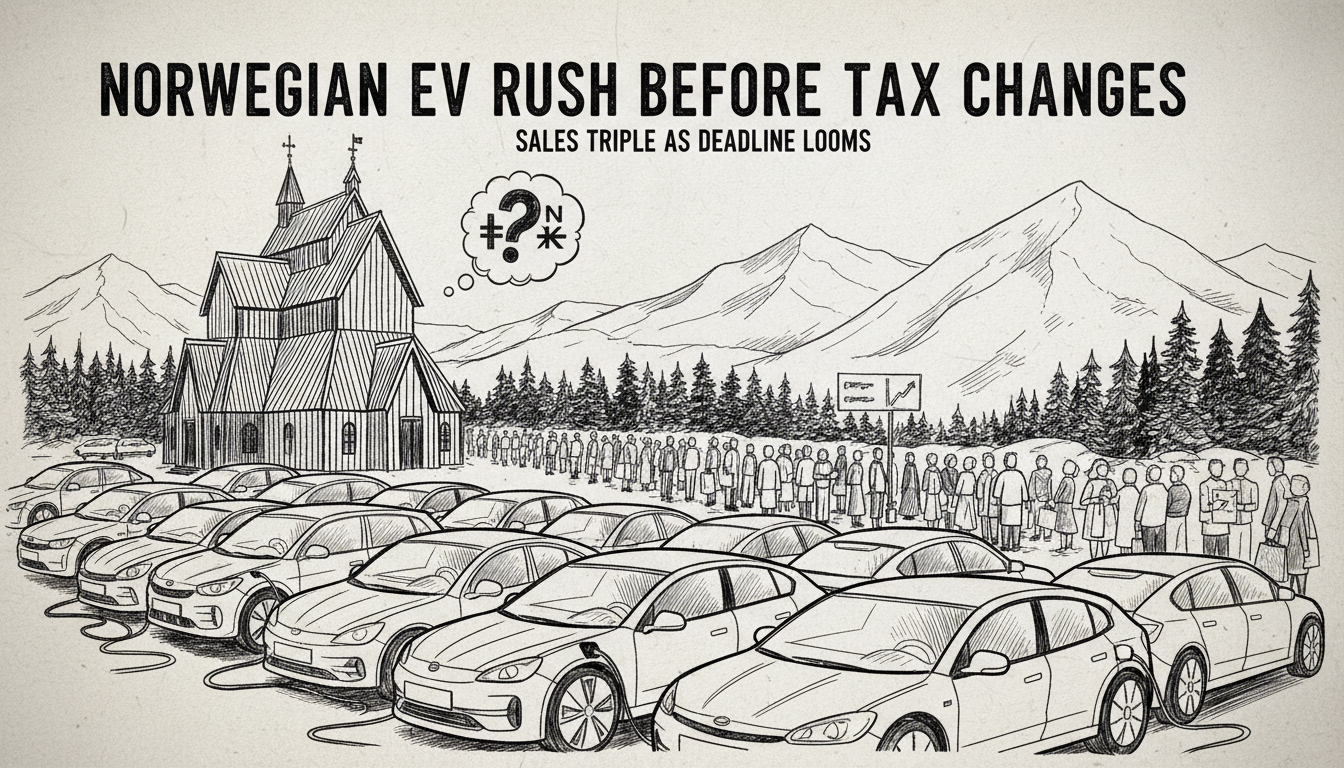Norwegian consumers are racing to purchase electric vehicles before new tax regulations take effect. The government plans to introduce 25% VAT on electric cars costing over 300,000 kroner starting in the new year. This has created unprecedented demand at dealerships across the country.
Car retailers report sales volumes have nearly tripled in recent weeks. Customers want to secure their new electric vehicles before the tax change becomes active. Many buyers are specifically seeking vehicles already in stock to ensure delivery before the deadline.
The timeline creates significant pressure for both dealers and consumers. Vehicles must be cleared through customs and registered before January first to avoid the additional tax. For a typical family car, this could mean savings of approximately 50,000 kroner.
Oslo's port facilities are experiencing extraordinary activity. Up to 10,000 new electric vehicles are expected to pass through the port before Christmas. Car carriers like the Polaris Liberty are unloading factory-fresh vehicles around the clock to meet demand.
Despite these efforts, industry leaders acknowledge they cannot satisfy all customers seeking delivery before the tax change. The managing director of a major automotive company expressed concern about the sudden policy shift. He suggested a more gradual implementation would have been preferable.
The proposed tax changes have drawn criticism from multiple political parties and industry groups. The Socialist Left Party recommends delaying the tax increase until March first. The Green Party proposes pushing implementation to April first with a higher threshold of 400,000 kroner.
Both opposition parties advocate for phased introduction of the electric vehicle tax over coming years. They argue sudden changes disrupt consumer planning and environmental goals.
The Norwegian Automobile Federation describes the tax adjustment as a shock change. They emphasize that high electric vehicle adoption benefits both household budgets and national emission reduction targets.
By 2027, the government plans to completely remove the VAT advantage for electric vehicles. This could make new electric cars unaffordable for many Norwegian families. The long-term impact on new car sales remains uncertain.
Finance officials maintain that with 95% of new personal vehicles in Norway now electric, it's time to phase out subsidies. The government argues these funds could better support other tax reductions and public priorities.
The current buying frenzy demonstrates how tax policy directly influences consumer behavior and market dynamics. Norway's experience provides valuable lessons for other nations navigating the transition to electric transportation.
This situation highlights the delicate balance between encouraging sustainable technology adoption and managing public finances. The outcome will shape Norway's automotive landscape for years to come.

